AKF’s Climate Innovation Challenge: Investing in innovation by investing in our people
Learn about our exciting new initiative empowering AKF staff to find solutions to climate challenges
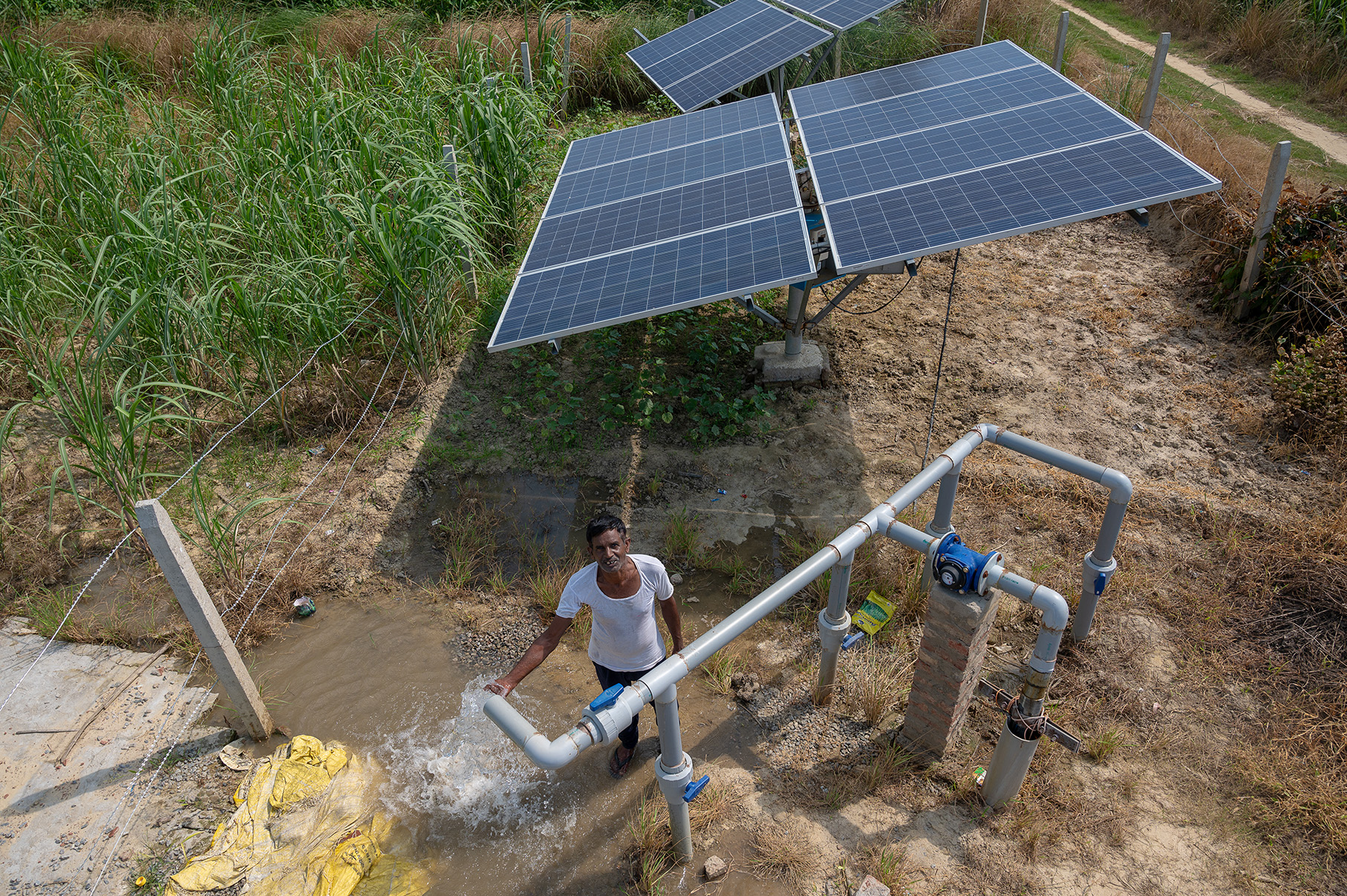
Describing why he established the Aga Khan Foundation (AKF) in 1967, His Highness the Aga Khan stated it, “was to meld professional management and technical skills with genuine participation by local people to explore innovative approaches to a selected number of development issues.”
At AKF, we believe in the power of innovation to drive positive change. Working at the community-level, we are always on the lookout for new ideas that can enhance the quality of life for the millions of people we serve, and crucially, can be brought to scale to make an impact on millions more.
Our organisation is built on deep local knowledge combined with diverse technical expertise, so this year, we decided to take a step further and challenge our colleagues around the world to explore and experiment with new and creative ideas. Introducing: the Climate Innovation Challenge.
The Climate Innovation Challenge is a pilot initiative that seeks out innovations from all corners of the AKF map to tackle climate change. The challenge connects colleagues working at the local level with AKF’s global climate and innovation experts, uniting their knowledge to invest in climate solutions that are inclusive, sustainable, and scalable.
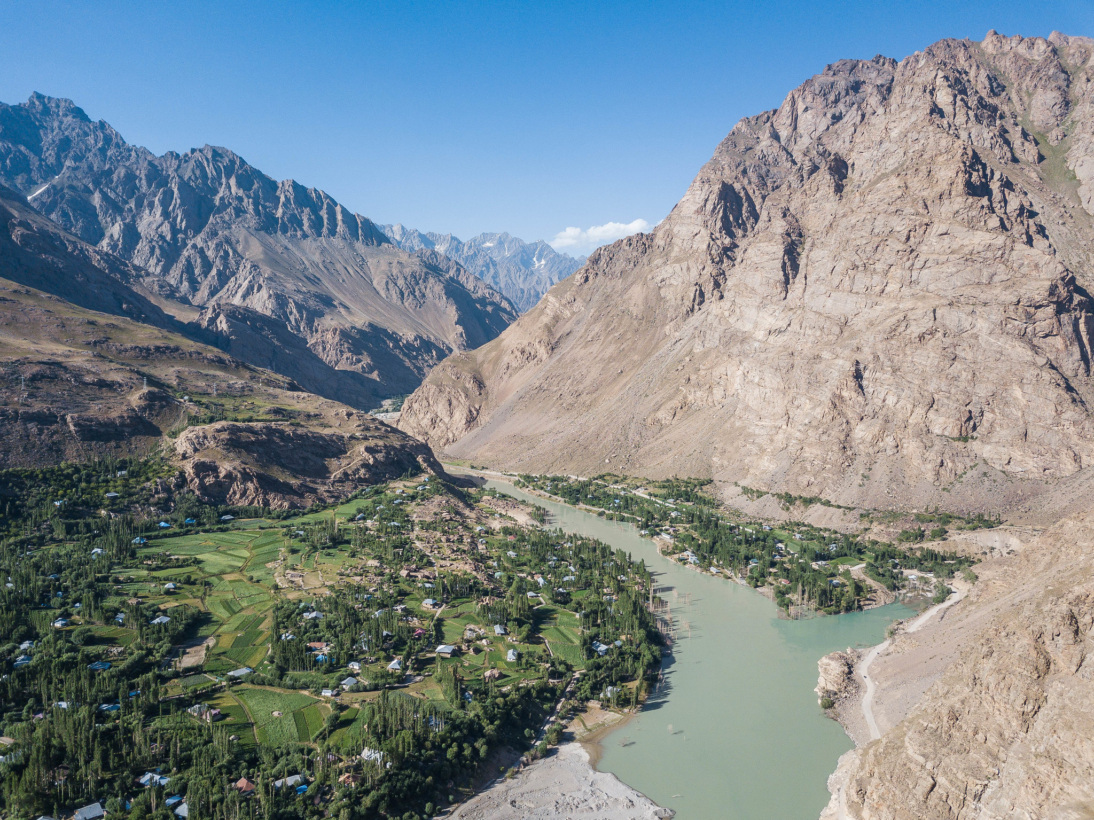
All the environments where AKF works are threatened by climate change – here a river in Tajikistan is bursting at its banks | Photo: AKF | Christopher Wilton-Steer
Why climate?
Climate breakdown is the most urgent challenge of our time. Floods in Pakistan, drought in the Horn of Africa, and cyclones in the Western Indian Ocean are just a handful of the devastating extreme weather events that hit international headlines in recent years, all of which were catalysed by climate change. Despite doing the least to contribute towards it, communities living on the frontlines of disasters like these – and the climate crisis itself – are fighting for resilience in rapidly changing environments.
“The convergence of climate change, deforestation and biodiversity loss is threatening the Earth’s resilience and capacity to recuperate,” explains Nick McKinlay, AKF’s Director of Programmes, “new ideas and technologies are providing us with solutions, such as the phenomenal rise in renewable energy production.”
Climate change is, by nature, a global crisis, yet its impacts are felt locally, in the day-to-day lives of individuals and communities. At AKF, we believe that is the best place to start when it comes to designing solutions.

Solar-powered irrigation is providing a lifeline for farmers in Syria
AKF / Christopher Wilton-Steer
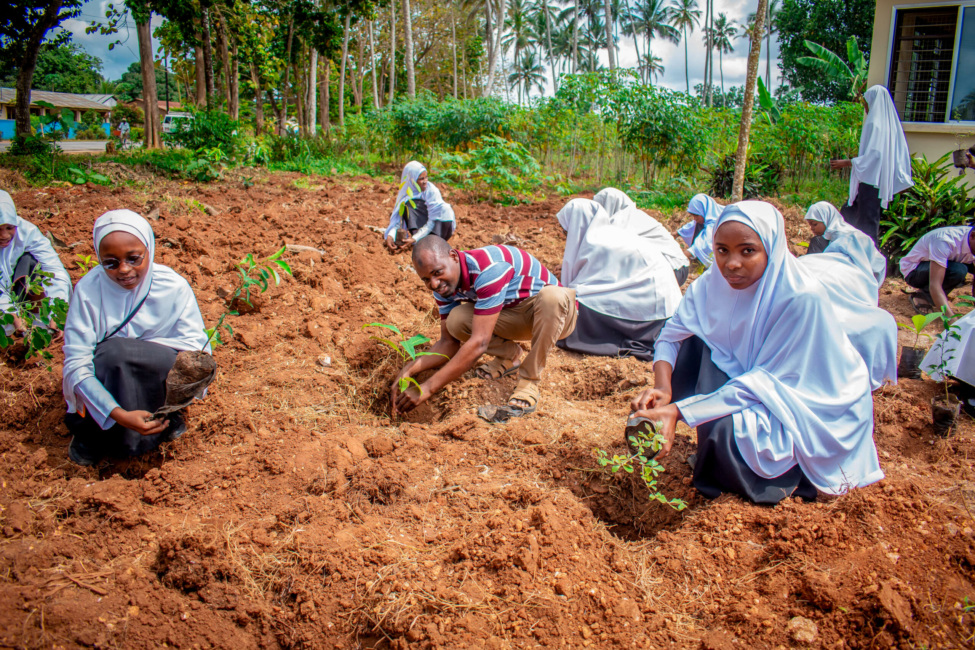
A teacher and his students at a school in Tanzania planting a microforest
AKF
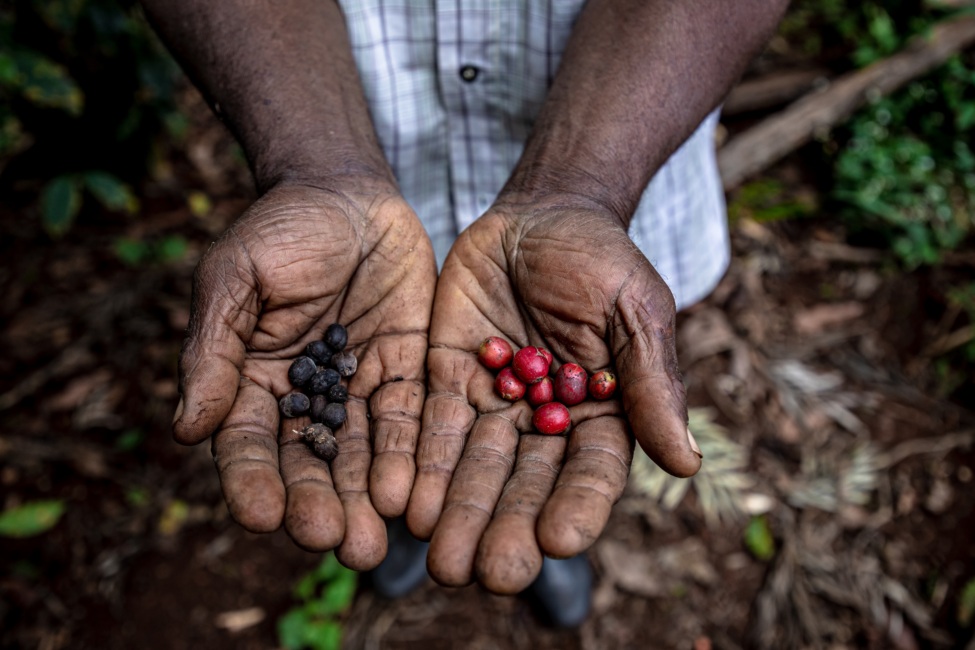
In Kenya farmers are trialling regenerative agriculture techniques to adapt to the impacts of climate change on their crops and improve yields
AKF / Natalia Jidovanu

A solar powered irrigation and drinking water scheme in Bihar, India
AKF / Christopher Wilton-Steer
/4
Across Africa, Asia and the Middle East, we work with thousands of climate-affected communities who are developing new, locally led responses to climate change every day. Amongst those responses; recycling rubble created during conflict, making natural fertilisers from chicken feathers, and building artificial glaciers to reduce water scarcity.
The Climate Innovation Challenge is a platform to invest more resources into these solutions and bring them to scale. We will translate them into products, services, processes, or initiatives geared towards climate adaptation and mitigation, building a network of local solutions that come together to tackle a global problem.
The story so far
In May, we invited teams from AKF’s offices around the world to come together and submit their ideas. In our quest to promote diversity within the teams, we intentionally opened the challenge to AKF staff at various seniority levels, as well as local partners from civil society organisations, the private sector, academia, government agencies, and other Aga Khan Development Network agencies.
“One of the things that is really critical for innovation to happen is diversity,” Munir Ahmad, AKF’s Global Lead for Innovation, explains. “The most inclusive and enriched ideas are usually the product of a partnership between those with the technical expertise and those with lived experience.”
Spanning seven categories from agriculture to tourism, 37 innovations were submitted from 10 countries. Whilst some are nascent ideas, others are already making an impact in the communities we serve.
“One of the things that is really critical for innovation to happen is diversity. The most inclusive and enriched ideas are usually the product of a partnership between those with the technical expertise and those with lived experience.”
Munir Ahmad, AKF’s Global Lead for Innovation
After being evaluated by AKF’s climate and innovation experts, six solutions were selected to move on to a four-week ‘acceleration sprint’ happening throughout September and October. The teams have each been assigned a coach, supporting them to prototype, test, and refine their innovations.
“We received the news of our selection with feelings of immense happiness, surprise and pride.” say Humaira Daniel and Parisa Malikzada, members of one of the winning teams. “Our selection, among other great ideas, is very encouraging for all AKF Afghanistan staff. Our climate innovation will benefit female-headed households, who otherwise can’t afford to secure their homes with their own limited resources.”
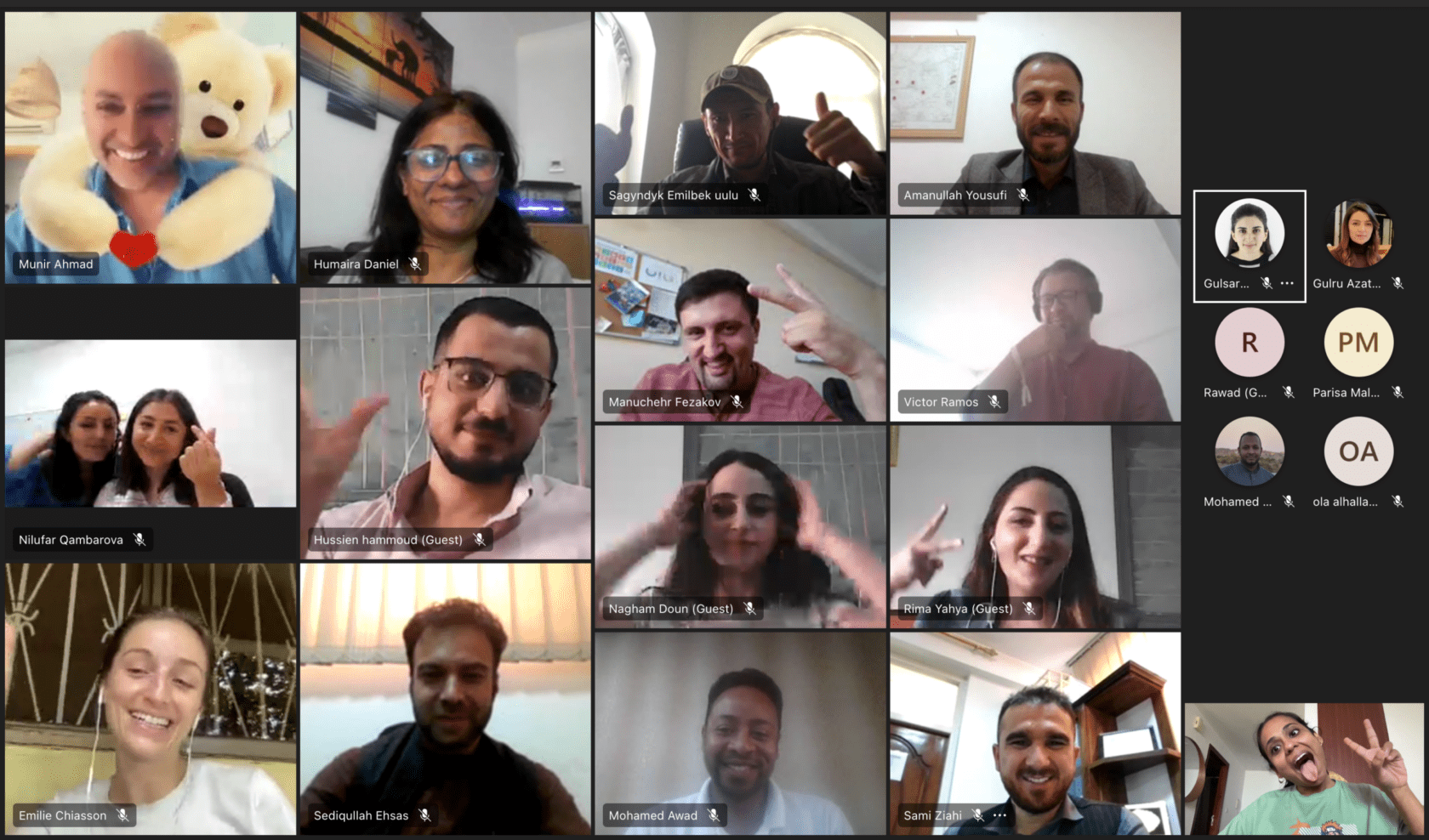
The finalists
- Passive solar housing in Afghanistan: A cost-effective housing solution for women-led households facing winter heating challenges. This innovative approach involves adding a south-facing veranda with a wooden frame and plastic sheeting to homes. Sunlight heats the veranda during the day, and by keeping the door/window open between the veranda and the house, warm air is channelled into the living space. In the evening, the window is closed, and curtains are drawn to retain the heat. This not only reduces fossil fuel consumption for heating but also creates an additional warm space during the day, all at an affordable cost.
- Rainwater harvesting in Portugal: An affordable rainwater harvesting system for urban residents living in Sintra’s Municipality-owned buildings. This solution utilises existing building elements like roof and rainwater downpipes to collect and store rainwater in tanks. This stored water will be used to create ‘green balconies,’ inspiring apartment owners to cultivate flowers or kitchen gardens on their windowsills or balconies, enhancing their homes and producing fresh, healthy food. These green balconies will symbolise solidarity and community efforts to combat climate change, raising awareness about water scarcity within the community.
- Wastewater microforest in Egypt: Our team is establishing a microforest in Balana village, Aswan, using treated wastewater. This creative approach addresses multiple challenges, including preventing water basin system collapse, averting sewage overflow into homes, preserving agricultural land, reducing disease risks, and creating a diverse neighbourhood microforest that may become a future timber source.
- Bio-humus in Tajikistan: This innovation focuses on introducing bio–humus (organic fertiliser) production to farmers who will become members of producer groups specialising in vegetable farming. The team is planning to kickstart this project by conducting awareness-raising and capacity-building sessions to ensure that farmers will grasp the fundamentals of bio–humus production. To facilitate hands-on learning, they will establish demo plots and Farmers’ Schools where participants will gain practical experience. This multifaceted approach will not only promote sustainable farming practices but also empower farmers to become self-sufficient, contributing to agricultural sustainability in the region.
- A tree nursery in Kyrgyz Republic: This team is working to promote and popularise the concept of small, dense tree plantations through providing increased access to indigenous tree species. With this initiative, AKF Kyrgyz Republic will further promote microforest plantations, whilst engaging with academic institutions to enhance understanding the of youth about indigenous trees and the importance of biodiversity for climate change mitigation. Communities will also benefit from having access to affordable tree seedlings, while learning about the importance of tree planting.
- Eco-cycle solutions in Syria: This team’s innovation is to make new and sustainable products by recycling old clothes and fabrics instead of making new ones from scratch. This idea is important because it promotes innovation and creative design to transform unused items into something new, preventing environmental harm caused by waste. These old clothes and fabrics can be obtained from factories and transform them into various items like clothing, household goods, or decorations. These transformed products can then be distributed to customers through eco-friendly channels.
Apoorva Oza, Global Lead for Agriculture, Food Security and Climate Resilience said, “The six finalists have proposed ideas which are out-of-the -box yet doable. They address problems which are not only current, but which will only increase with climate change. All of them have made us step back and say, ‘Why didn’t I think of this?!’”
The acceleration sprint will conclude with a pitch event, where our expert panellists will delve deeper into the ideas and select up to three teams to receive up to $20,000 USD each for a three-to-six-month pilot project. Our winning teams will also benefit from support by AKF’s partnerships team to understand the potential to transform their concepts into fundable proposals.
“The six finalists have proposed ideas which are out-of-the -box yet doable. They address problems which are not only current, but which will only increase with climate change.”Apoorva Oza – Global Lead for Agriculture, Food Security and Climate Resilience
Through the Climate Innovation Challenge, we are investing in innovation by building the capacity of our teams worldwide. As Munir says, “Innovation isn’t a lightbulb moment – in reality, it is a product of effort, empathy, and experimentation. We’re investing in our people to have the skills, mindsets and attitudes that lead to impactful innovation.”
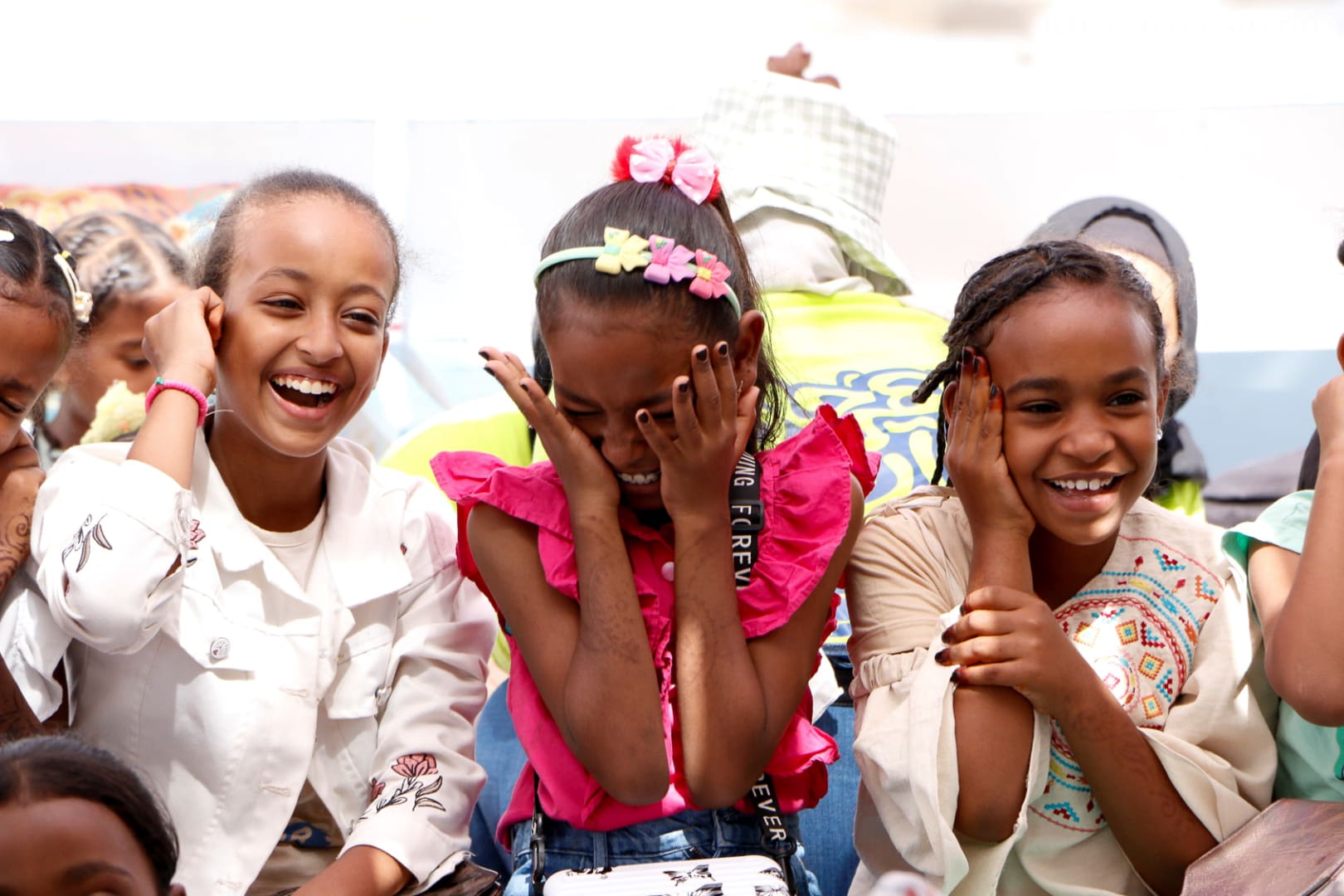
Support our work Your donations are helping us build a future where we all thrive together.